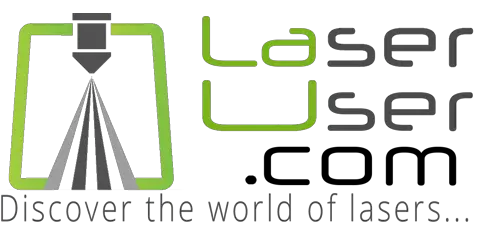So I'm new to anything with a laser. I have tried multiple materials and all have had the lines across the X axis. I imagine it's to do with the step in the motor travel, but have no idea on how to change it.
Also, as you can see in the picture I get a "fog" around the etched area. Is this my settings? ie. not moving fast enough. Or maybe not enough airflow? I'm using the stock air pump that came with the machine.
Any help would be greatly appreciated.
Two querstions: Lines in etching and foggy acrylic
-
Benjamin Trinkle
- Posts: 8
- Joined: Wed Mar 06, 2019
- Location: Southern Illinois
- Country: United States
- Laser Machine Make or Type: Chinese
- Laser Power: 50w
- Laser Bed Size: 12x20
- Home Position: TL
- RDWorks Version: dont use
- Windows Version: 7-10
You do not have the required permissions to view the files attached to this post.
- Gene Uselman
- Posts: 2180
- Joined: Thu Jul 07, 2016
- Location: Suburban Minneapolis, Minnesota, US
- Country: USA
- Nickname: Gene
- Laser Machine Make or Type: QC
- Laser Power: 130W
- Laser Bed Size: 900x1300
- Home Position: TR
- Control Software: LIGHTBURN
- RDWorks Version: RDw .19 & Lightburn
- LightBurn Version: Latest
- Ruida Controller: RDC6442
- Windows Version: Win 10 Pro
- Accessories: I have a combining lenses, pin tables [homebuilt], honeycomb tables , wireless remote, Modifed Ultimate Air Assist, home built non-powered rotary device, PrusaMK4 and Mini Prusa printers.
For etching you want minimal Air Assist flow, a better thing is flow across the surface to move the vapor off quickly. Even a floor fan will help. The ultimate answer is to mask the surface with paper mask or some people use a soap solution. The lines can be adjusted in the color layer setting, look for Interval- smaller numbers will take longer but you will not see the lines as much as they will be closer together. Increasing your focus distance will have the effect of melting the lines together, you kinda have to experiment with it.
If the Help and advice you received here was of VALUE...
Please consider making a donation to maintain the RDWORKSLAB Forum.
The days that I keep my gratitude higher than
my expectations, Well, I have really good days.
Ray Wylie Hubbard- unfortunately deceased
Please consider making a donation to maintain the RDWORKSLAB Forum.
The days that I keep my gratitude higher than
my expectations, Well, I have really good days.
Ray Wylie Hubbard- unfortunately deceased
-
Jeffrey Aley
- Posts: 388
- Joined: Fri Aug 11, 2017
- Location: Folsom, California
- Country: United States
- Laser Machine Make or Type: Kehui
- Laser Power: 50W
- Laser Bed Size: 500mmx300mm
- Home Position: TL
- RDWorks Version: 8.01.24
- Ruida Controller: RDC6442
- Windows Version: Win10 Enterprise
- Accessories: Spray bottle with water (for small fires)
Fire extinguisher (for big fires)
When the laser hits the acrylic, it evaporates into a vapor. The fog is caused by that vapor condensing onto the surface of the acrylic. So you can help the problem with increased airflow from the extraction fan (I get better extraction I open the lid a little bit, but there's an obvious safety risk).
Or you can mask off the surface of the acrylic so that when you're done, you peel off the mask revealing a pristine surface. You could try a bit of blue painter's tape (masking tape) while you're experimenting.
Some folks recommend using liquid dish soap (Ivory, Dawn, etc.). In British-speaking countries, I think they call this "washing-up liquid". Paint the soap on the acrylic, let it dry, then laser. Afterwards, rinse off the soap (and the condensed acrylic haze). The advantage of the soap method is that you don't have to pick bits of blue tape out of a bunch of tiny nooks and crannies.
Or you can mask off the surface of the acrylic so that when you're done, you peel off the mask revealing a pristine surface. You could try a bit of blue painter's tape (masking tape) while you're experimenting.
Some folks recommend using liquid dish soap (Ivory, Dawn, etc.). In British-speaking countries, I think they call this "washing-up liquid". Paint the soap on the acrylic, let it dry, then laser. Afterwards, rinse off the soap (and the condensed acrylic haze). The advantage of the soap method is that you don't have to pick bits of blue tape out of a bunch of tiny nooks and crannies.
-
Benjamin Trinkle
- Posts: 8
- Joined: Wed Mar 06, 2019
- Location: Southern Illinois
- Country: United States
- Laser Machine Make or Type: Chinese
- Laser Power: 50w
- Laser Bed Size: 12x20
- Home Position: TL
- RDWorks Version: dont use
- Windows Version: 7-10
Thanks for the replies. I rigged up a quite string computer fan to blow air over the work surface. Have yet to try it on acrylic yet, but has proved promising on other material.
I also found the settings for the y movement and changed that.
I also found the settings for the y movement and changed that.
